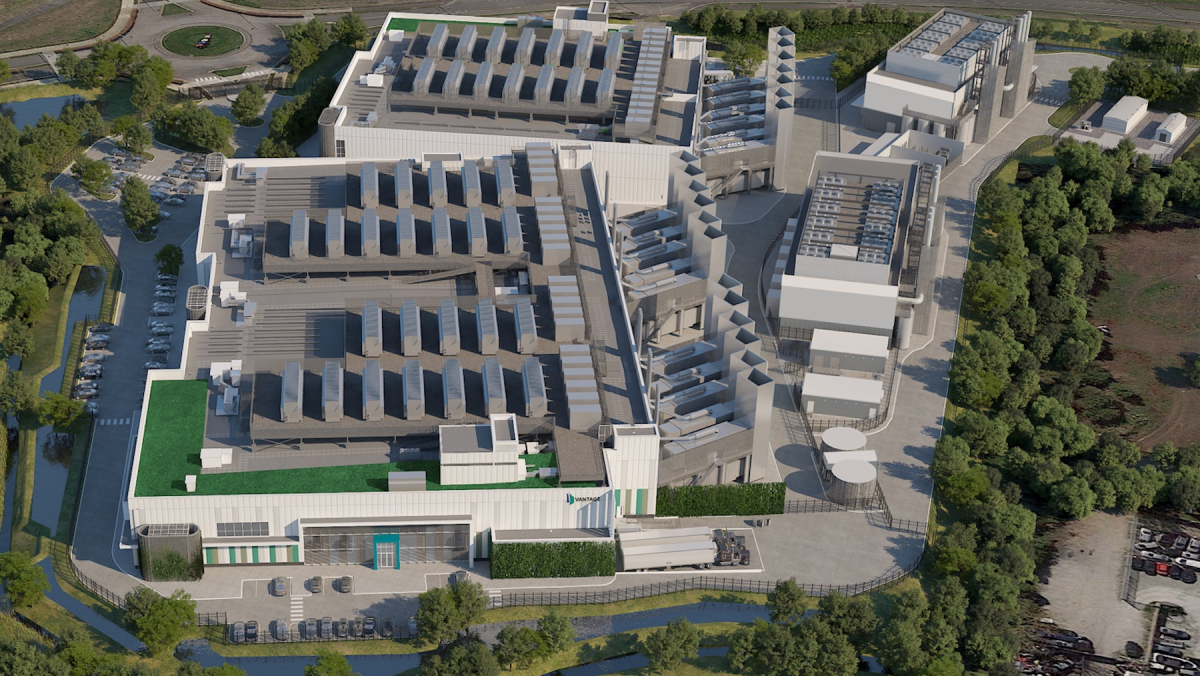Martin Ryder, Channel Sales Director, Northern Europe at Vertiv, outlines the benefits of prefabricated modular data centres.
The digital era is bringing remarkable technological advancements and an increase in the need for processing and storing data. This has led to data centres becoming the central hubs of our interconnected world – and as the global demand for digital services continues to surge, the digital infrastructure industry is undergoing a transformation.
To meet the evolving needs of businesses and consumers, organisations are turning to standardised construction practices, which include the adoption of prefabricated modular data centres. These innovative solutions are revolutionising the way data centres are designed, built and operated – empowering data centre operators to optimise performance, scalability and sustainability while driving economic efficiency.
For channel partners operating in this dynamic landscape, understanding the opportunity that prefabricated modular data centres bring could be key to ensuring long-term success. So what benefits, challenges and opportunities do prefabricated modular data centres give to the channel and how can you navigate this rapidly evolving market to enable your customers to take advantage?
What is a prefabricated modular data centre and what are the benefits?
A prefabricated data centre is a modular, pre-engineered facility that is built off-site and then transported to the desired location for quick and efficient deployment. Many businesses are using this approach to benefit from accelerated timelines and streamlined operations to cope with the increasing demands that data-driven operations are putting on existing infrastructure.
The modular designs bring together critical components, in controlled factory conditions. And they are designed to incorporate cutting-edge technologies such as cooling, which can reduce energy and water consumption while improving overall operating costs. By integrating these types of solutions during the manufacturing process, the data centre operators can have the option to seamlessly change or adapt cooling systems, increase capacity and optimise them for effectiveness by using sophisticated control systems that evolve to changing server loads.
By leveraging off-site fabrication and assembly, the construction timeline is significantly accelerated because of parallel development of site works. This streamlined process empowers businesses to adapt to changing needs, whether it’s accommodating sudden surges in data processing requirements or swiftly establishing new locations using identical designs.
There are significant benefits that come with adopting a standardised approach in the form of prefabricated modular data centres. The growing popularity of these facilities stems from their ability to offer speedy scalability, great build quality, easy deployment and pre-designed operational efficiency. This standardisation paves the way to empower channel partners to efficiently support the ever-increasing infrastructure demands of their customers through:
Consistency across deployments: With modular components and predefined building blocks, channel partners can maintain uniformity in design, infrastructure and functionality. This consistency not only enhances operational efficiency but also facilitates seamless integration with existing infrastructure and systems.
Streamlined operations: With predefined design templates, predefined power and cooling modules and standardised equipment layouts, operations can be streamlined and optimised. Channel partners can leverage the knowledge gained from previous deployments and implement best practices consistently across multiple projects. This consistency simplifies installation, commissioning and ongoing maintenance, reducing the learning curve for operational teams. It also enables faster troubleshooting and issue resolution.
Simplified maintenance processes: Maintaining data centre infrastructure can be a complex and time-consuming task. However, with standardised construction practices, channel partners can significantly simplify maintenance processes. Modular components allow for easy replacement and upgrade of individual units, reducing downtime and reducing disruptions to operations.
Additionally, maintenance can be made available from a single vendor if the majority of components are supplied by that vendor. This improves serviceability and reduces downtime, which is crucial to partners and the customers they serve. The modular approach simplifies ongoing maintenance and repairs, as replacement parts are more easily available and troubleshooting is streamlined. By minimising service issues and optimising maintenance procedures, channel partners can enhance operational reliability. Additionally, the use of consistent design and layout principles enhances accessibility, enabling technicians to perform routine inspections, repairs and maintenance more efficiently.
Rapid scalability: In a dynamic and rapidly evolving digital landscape, the ability to scale infrastructure quickly is crucial. Standardised prefabricated modular data centres provide channel partners with the agility to respond to changing client demands. The modular nature of these data centres allows for seamless expansion by adding or removing modules as needed.
Reduced Total Cost of Ownership: The modular nature of these data centres enables organisations to scale their infrastructure in line with growing demand, avoiding overprovisioning by utilising modular uninterruptable power supplies (UPS) and cooling systems that can be expanded as the IT load increases over time.
Seize the opportunity
As the technology industry continues to evolve and adapt to the growing demand for digital services, the adoption of standardised construction practices in prefabricated modular data centres holds immense promise for channel partners. The power of prefabricated modular data centres lies in their ability to deliver accelerated deployment timelines, cost savings and improved operational efficiency through standardised construction practices. The advantages of consistency, streamlined operations, simplified maintenance processes and rapid scalability empower channel partners to navigate the complex landscape of data centre deployments with confidence.
By embracing modular components and building blocks, organisations not only get uniformity in design and infrastructure but also optimise resource use, leading to cost savings and improved operational efficiency. The ability to meet the increasing demands of customers efficiently positions the channel as reliable and trusted partners. The benefits extend beyond operational excellence, as channel partners can enhance customer satisfaction by delivering consistent and high-quality data centre solutions as well as maintenance.
Moreover, the adoption of standardised construction practices enables channel partners to adapt and thrive in the face of industry changes. With the ability to rapidly scale their offerings, channel partners can seize new opportunities and stay ahead of the competition. They can leverage their expertise in prefabricated modular data centres to address evolving customer needs, whether it be accommodating sudden increases in data processing requirements or supporting the establishment of new locations.





